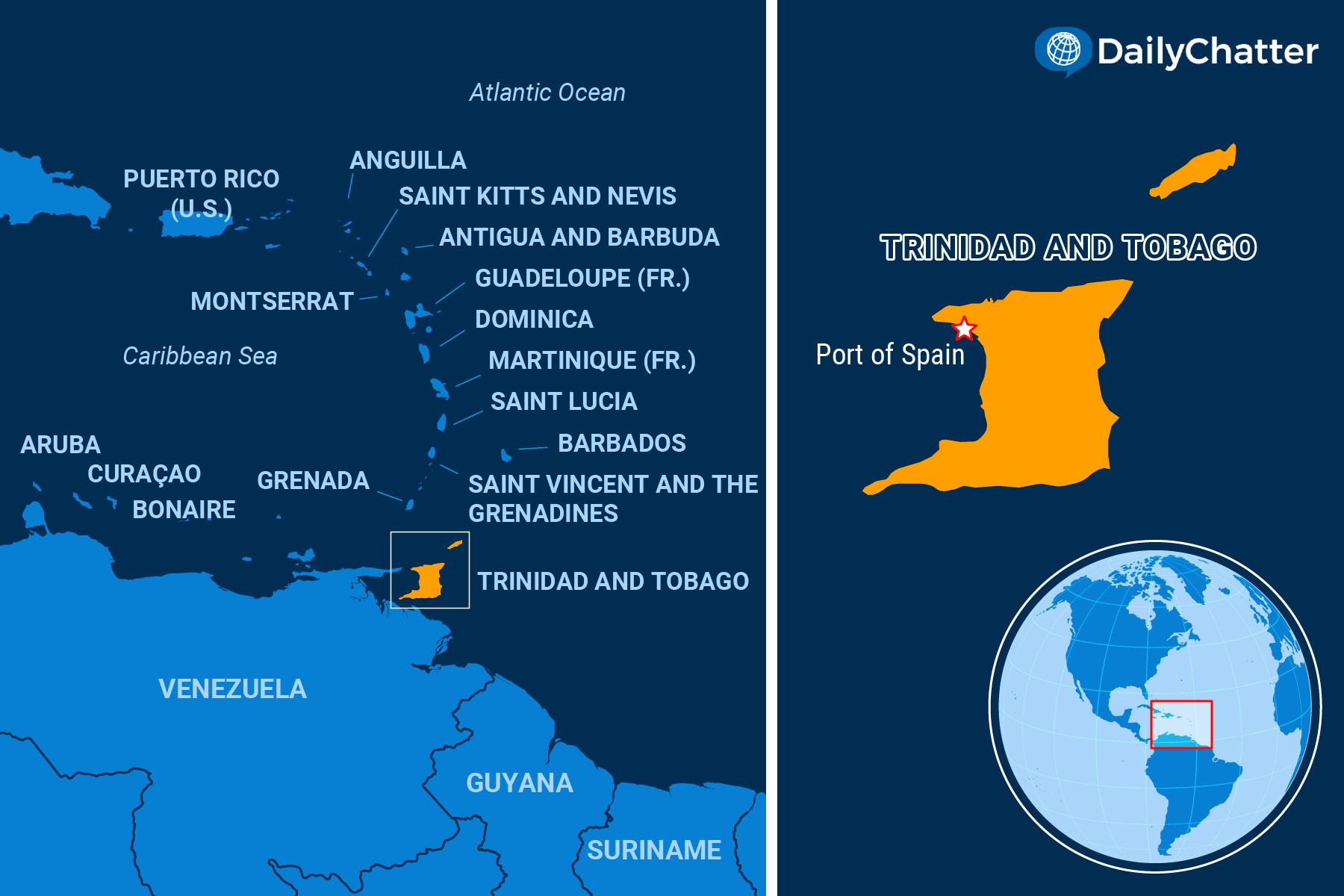Need to Know
February 29, 2024The Ghosts of the Sea
Trinidad & Tobago

|
Listen to Today's Edition
|
A bag containing $75,000 worth of cocaine recently washed up on the shore at Cove Estate on Tobago, one of the islands that comprise the Republic of Trinidad and Tobago in the Caribbean Sea. Police have not yet determined if the bag is linked to the 330-foot-long vessel that recently capsized around 500 feet from the same beach on Feb. 7.
But the find could shed light on the disaster at sea. Mystery initially surrounded the incident, Agence France-Presse reported, because nobody radioed for help at the time of the accident and no traces of the crew have been found.
The environmental impact of the wreck has been outraging local authorities. The vessel was carrying 35,000 barrels of fuel oil that leaked, befouling the island’s waters and beaches at the height of the tourist season, an important industry. Prime Minister Keith Rowley described the accident as a national emergency, according to the Associated Press.
Much of the oil headed west, away from Tobago, before coating around 10 miles of the island’s coastline. Officials in the country, which pumps the most oil in the Caribbean, have experience with spills. As Reuters reported, they have called in salvage experts to help with recovering the barge and cleaning up the mess. The oil slick also spread to Grenada and Venezuela, added the Guardian.
Then Trinidad and Tobago officials announced they had pieced together the events surrounding the accident. The ship was actually a barge named the Gulfstream that a Panamanian tugboat called the Solo Creed had been towing to Guyana in South America via Aruba, the Washington Post wrote. These details did not entirely solve the mystery of who had irresponsibly left the barge tipped over in the water without notifying authorities, if only to trigger an immediate environmental rescue effort.
After seeing his name associated with the boat in a Facebook post, Mohamed Qualander, who runs a business called the Queensway Group in Guyana, issued a statement denying that he owned the barge, noted Caribbean National Weekly, a South Florida-based news service for the Caribbean American community.
Investigative news service Bellingcat found that the barge was hard to track since it is an unpowered vessel that would have no registration number. It might have been connected, however, with so-called “ghost fleets” that transport oil from Iran and Venezuela in violation of Western sanctions. Or the barge might have been old. Tankers last for around 30 years. The Gulfstream may be almost 50 years old.
Meanwhile, the situation that led to the disaster in Trinidad and Tobago is likely to be seen again in the future, analysts say.
That’s because the number of ships that have gone dark to operate in ghost fleets has tripled since 2019, the Financial Times reported. Operating under the radar, these vessels are frequently poorly maintained, Bellingcat says. For example, Reuters reported that more than half of Venezuela’s state-owned fleet of oil tankers are “so run down that they should be immediately repaired or taken out of service.”
Not already a subscriber?
If you would like to receive DailyChatter directly to your inbox each morning, subscribe below with a free two-week trial.
Support journalism that’s independent, non-partisan, and fair.
If you are a student or faculty with a valid school email, you can sign up for a FREE student subscription or faculty subscription.
Questions? Write to us at hello@dailychatter.com.

